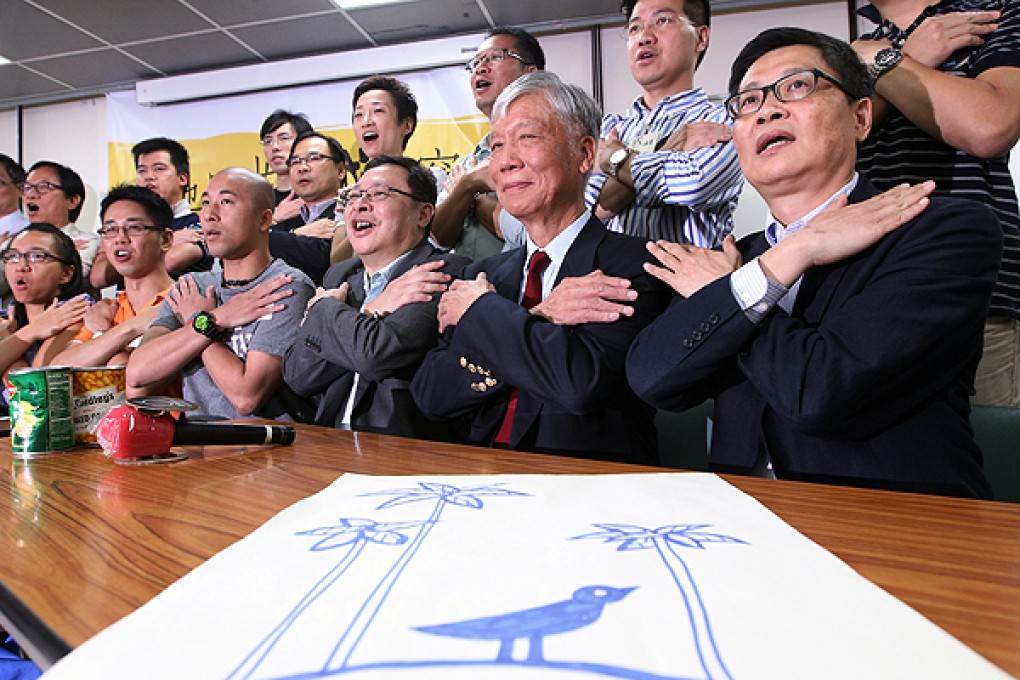Opinion | Beijing must avoid paranoia over 'hostile foreign forces' in Hong Kong
Frank Ching says Beijing must not let paranoia undermine its promise of a high degree of autonomy and universal suffrage to Hong Kong

There are signs that the central government is increasingly anxious about developments in Hong Kong. The meeting between a leader of the Occupy Central campaign and Shih Ming-teh, the former chairman of the pro-independence Democratic Progressive Party in Taiwan, touched a raw nerve in Beijing, and the state-run newspaper Global Times has warned that Hong Kong's opposition is in danger of turning itself into an "enemy of the state".
At the same time, an alarming video produced with the backing of the People's Liberation Army accuses the US and British consulates in the city of supporting subversion against the mainland.
The Chinese reaction to the Shih meeting reflects Beijing's extreme sensitivity to the possibility of Hong Kong political activists linking up with pro-independence Taiwanese political forces.
The video, Silent Contest, is aimed squarely at the US and revives fears of a campaign to bring about "peaceful evolution" in China.
Recently, there have been warnings that events could get out of hand if the organisers of Occupy Central go ahead with their plans. There is a fear that the PLA would move in to restore order and that Beijing might then go so far as to cut short the 50-year period promised to Hong Kong in the Basic Law under "one country, two systems".
Both sides ought to exercise a little common sense. What did the Occupy Central leader think it would achieve by meeting Shih? It's simply not worth getting Beijing riled and suspicious.
